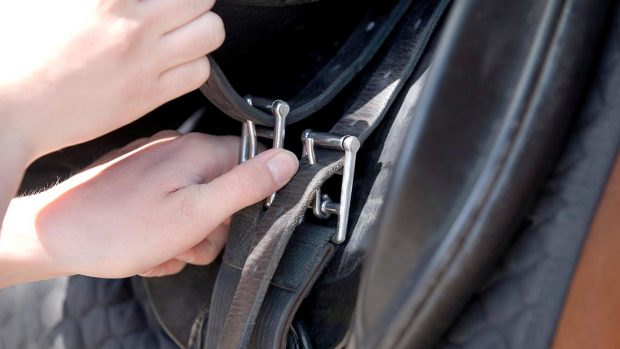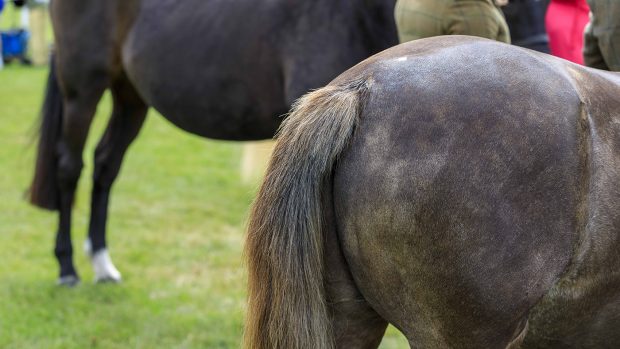1. Condition scoring
Use condition scoring to work out if your horse is carrying too much fat. This can be combined with regular use of a weigh tape. What is condition scoring? [PDF download]
2. Review your feed
Ask an equine nutritionist whether you are feeding your horse appropriately. It is easy to end up feeding more calories than your horse actually needs. Most feed companies offer advice free by phone or email. View feed helpline numbers. You may find a low-calorie chaff with a general vitamin and mineral supplement is all your horse requires.
3. Don’t crash diet
Horses need a steady supply of forage to keep their gut functioning normally, so don’t leave them stabled for long periods without hay. Replace haylage/top quality hay with hay of a lower nutritional value and soak it for a minimum of 12hours to remove the calories. Do not feed dusty or mouldy hay.
4. Control grass intake
Most leisure horses get more calories than they need from grass alone. You can restrict their grass intake through strip grazing, turning out in a paddock with limited grass or wearing a muzzle. Find ways to cut down the amount of grass they get without stopping them from eating completely. You can find useful tips in this video.
5. Improve fitness for more energy
If your overweight horse is lazy to ride, don’t be tempted to feed small amounts of high energy feed for more ‘oomph’. A high energy feed is also high in calories, which will just make the horse even fatter. Reduce the horse’s calorie intake so they lose weight and work on their fitness to give them more energy.
6. Walk more
A brisk walk or steady trot will burn more fat than faster work such as canter. Find ways to build more active walking into your horse’s day to help increase weight loss.
7. Reduce your horse’s rugs
If your horse is overweight consider whether it could go without a rug or if it could wear a lighter weight one than the one it is currently wearing. Remember that the process of digesting fibre in the horse’s gut generates heat and keeps the horse warm from the inside out.
8. Treat your horse as an individual
Don’t feed or rug your horse just because everyone else does. Consider what your horse needs and tailor your care to their requirements.
9. Monitor your horse
Horses can put on weight very quickly so fat scoring and weightaping your horse fortnightly will help you spot any changes. Most of us become blind to changes in our own horses because we see them every day. Take time out to review their condition.
10. Use the internet
For more handy tips to help maintain your horse’s weight at the right levels log on to www.worldhorsewelfare.org/rightweight and view the World Horse Welfare video below.




